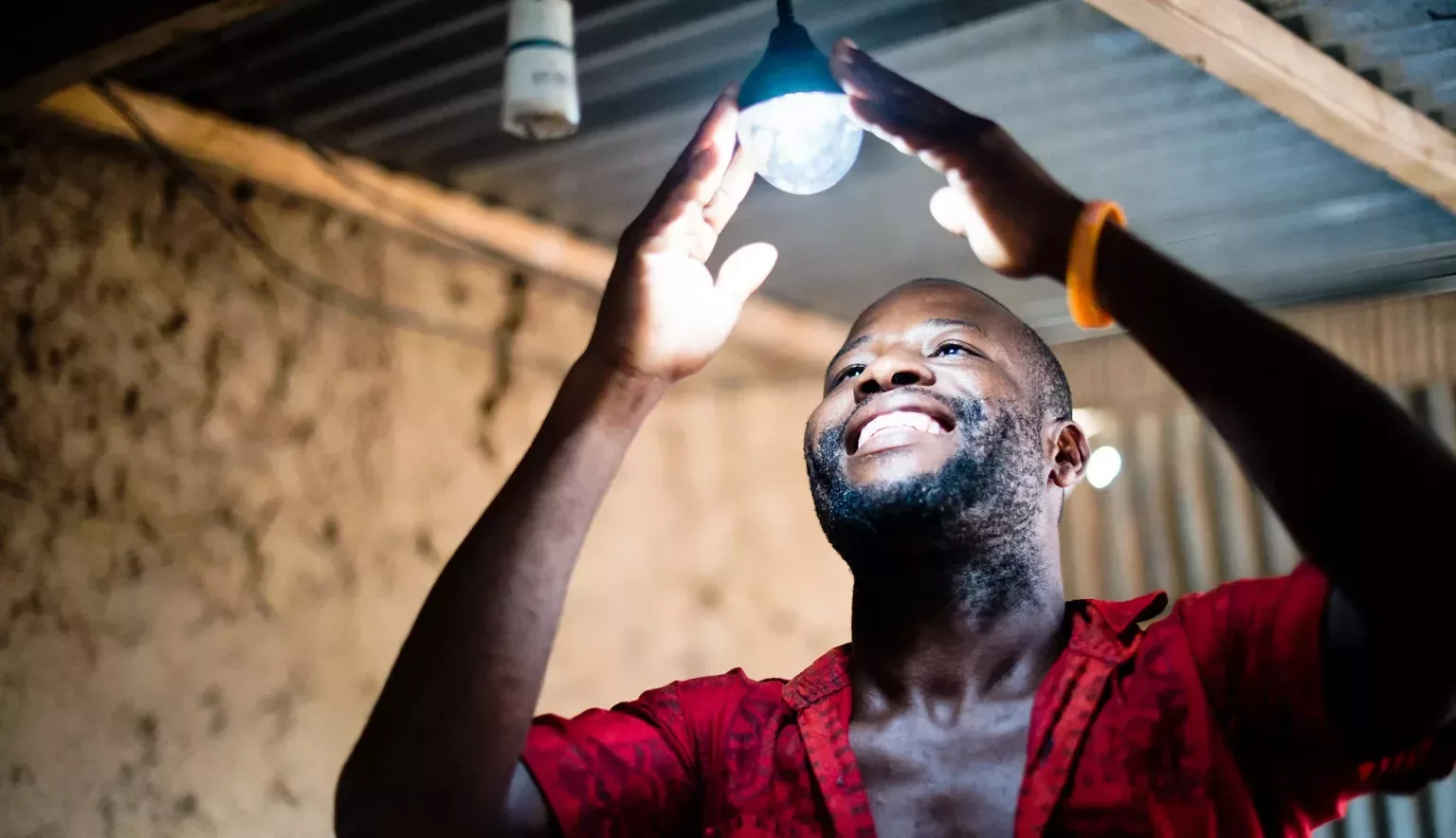We talk to GOGLA and explore the development and deployment of off-grid solar solutions across Africa, which is quickly becoming the continent’s most promising renewable energy solution.
INTRODUCTION
‘The Sun continent’, Africa receives more hours of sunshine per day than any other on earth. As such, the potential for solar power is obvious.
In recent years, the case for the acceptance and development of renewable energies, and the off-grid potential of solar, has become increasingly compelling, as the UN identifies energy poverty as one of the greatest impediments to cross-continental socio-economic development.
Solutions to the challenge of energy access are critical, and growing rates of urbanisation, population growth, and of course climate change, are serving to exacerbate the issue. Indeed, as of 2021, it is estimated that 760 million people still lack access to electricity, relying on candles and kerosene lamps to power their homes.
The past decade has witnessed many exciting developments across Africa in respect of solar photovoltaic (PV) energy. Globally, the off-grid solar sector has enjoyed significant growth over the past decade to represent a $1.75 billion annual market that serves 420 million users, with further expansion on the horizon. Consequently, off-grid solar PV is increasingly recognised as a means to expand the continent’s energy security whilst supporting sustainable economic growth without reliance on the utility grid.
With the correct batteries, equipment and energy storage systems in place, off-grid PV systems offer the ability to work independently in spite of adverse weather conditions or shortages that often cause grid failure and power outages. Whilst off-grid systems and the battery storage solutions necessary to store electricity to make solar a viable energy source may initially be more expensive, ultimately, the heightened reliability and lack of a recurring electricity bill, makes this an increasingly attractive and cost-efficient option.
These efficiencies in solar PV, alongside pioneering new business models, have led to off-grid home solar power systems being rapidly adopted across Africa. Instead of waiting for the grid to come to them, millions of families and businesses are now taking energy access into their own hands and purchasing their own, standalone, renewable energy systems.
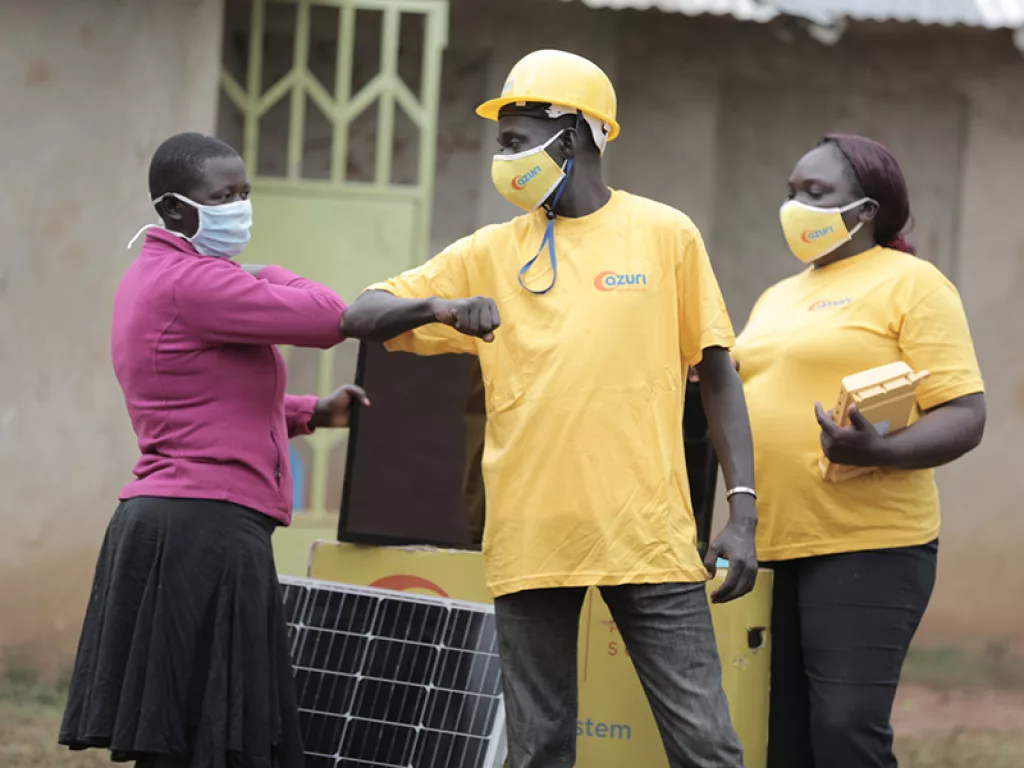
Q&A WITH PATRICK TONUI, HEAD OF POLICY AND REGIONAL STRATEGY, GOGLA
Since 2012, GOGLA have been the voice behind the global off-grid solar energy industry. We examine the progress of a solar-powered future across the developing world and GOGLA’s mission to combat energy poverty on a global scale.
Can you talk us through the origins of GOGLA; how it came about and its initial vision?
Patrick Tonui (PT): Nearly 800 million people around the world live in energy poverty and over a billion more have insufficient electricity supply. In the mid-2000’s the modern off-grid solar energy industry began to develop – creating affordable, quality, ‘standalone’ solar solutions – solar lamps and home systems – that could be bought by people across the developing world. These solutions could replace the toxic kerosene lamps and candles they were using to light their homes and businesses.
In 2008, the World Bank and International Finance Corporation (IFC) Lighting Kenya programme came on stream and brought together some of the first off-grid solar lighting companies. Seven of these early pioneers recognised the need to form GOGLA, a not-for-profit industry association, specifically geared to support the private sector in increasing access to modern off-grid solar energy.
From these initial founders, GOGLA has now grown to have over 200 members, becoming the voice of the off-grid solar energy sector, globally. We have continued to work closely with the World Bank and IFC but expanded partnerships well beyond these actors too. We are a team of 25, with our headquarters in Amsterdam and regional staff in East Africa, West Africa and India. Our mission is to improve energy access for over a billion people by 2030.
Since inception, how has GOGLA developed and progressed in terms of its key objectives and the messages it tries to get across?
PT: Over the years, we have grown from being an association for off-grid solar manufacturers to represent both off-grid solar manufacturers and distributors, as well as appliance and productive use companies. Our industry members range from market leaders to new start-ups, and from local SMEs to multinational corporations. Associate members include leading sector investors, national renewable energy associations and research institutes.
Our members continue to pioneer new, rapidly deployable clean tech innovations at a staggering rate. From the industry’s initial focus on solar lighting, the sector has expanded to include productive use technologies, such as IoT enabled solar irrigation and ultra-efficient cooling, and information services such as radios, TVs and smart phones. All of these products are tailor-made for low-income households and businesses in developing countries.
Our objectives are to help our members create responsible and sustainable enterprises, support policymakers across Africa and Asia to develop the enabling environment needed for the industry to thrive, drive investment into the off-grid space, and help development partners create the interventions needed to rapidly accelerate access to clean energy and green jobs.
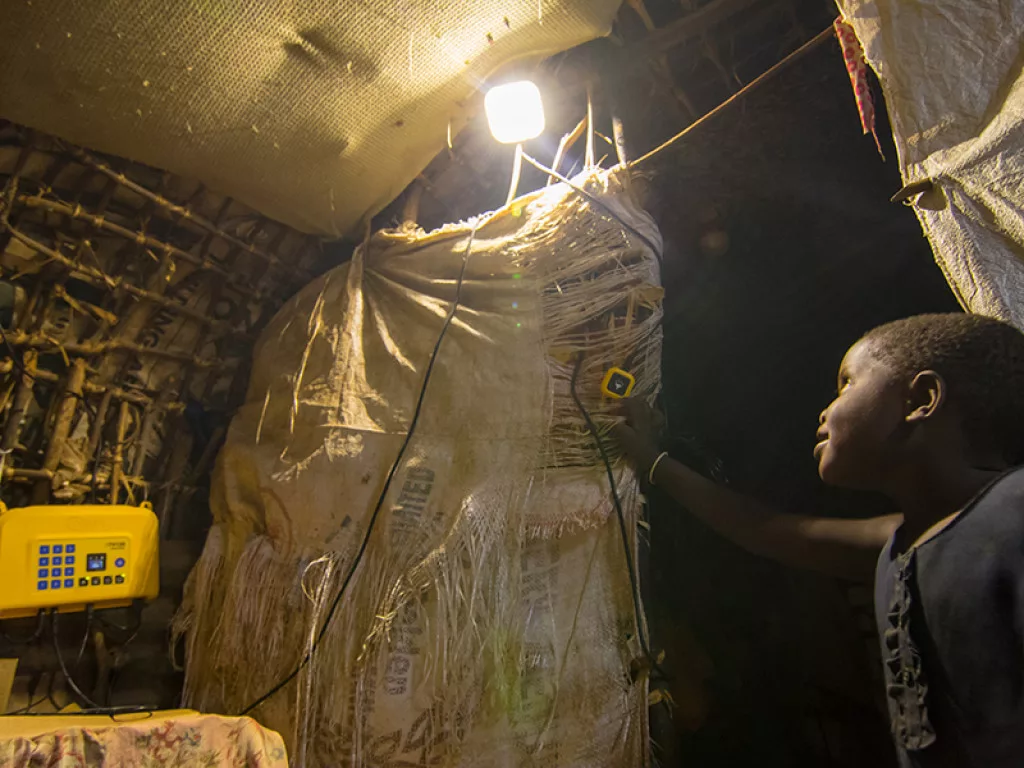
What do you find most exciting about working within the off-grid solar energy industry?
PT: Our sector is at the front line of technology and business innovation. Our members are social enterprises, reaching people in low-income communities or rural areas, who are often left out of our economies. We are also bringing clean energy jobs to these communities and opening up economic opportunities for small businesses, whilst improving people’s quality of life. This impact on the day-to-day lives of millions of people is what drives me to work in this sector.
As we engage with various national governments, I also find it exciting to see how well our industry sector aligns with public interests. Delivering public services such as access to electricity and bettering the lives of their citizens by empowering economic opportunities is what all governments are after and we enable that, helping deliver on their agenda.
On the flip side, what are the biggest challenges facing the development of solar energy?
PT: I believe our core challenges are on two fronts.
First, it is critical that off-grid solar is seen as an essential part of the energy mix and gets the right fiscal, regulatory and programmatic support – whether in the form of subsidies, tax exemptions or other measures. Off-grid solutions are an affordable way to electrify hundreds of millions of people around the world, but without the right public support, millions may miss out on accessing these life-changing technologies.
Several governments, such as those in the East African Community, have shown strong commitment to the off-grid sector and in boosting energy access for their citizens, but many countries with low electricity access rates are yet to define and adopt specific policies and measures in this regard.
Secondly, we need to rapidly accelerate the rate of investment in the sector. This is across the funding spectrum – from grants to concessional finance, equity to debt. We also need to ensure the financial community understands our space and can provide appropriate finance that can help rural communities to buy off-grid products and services. Increased financial support must also include investments for locally owned firms too.
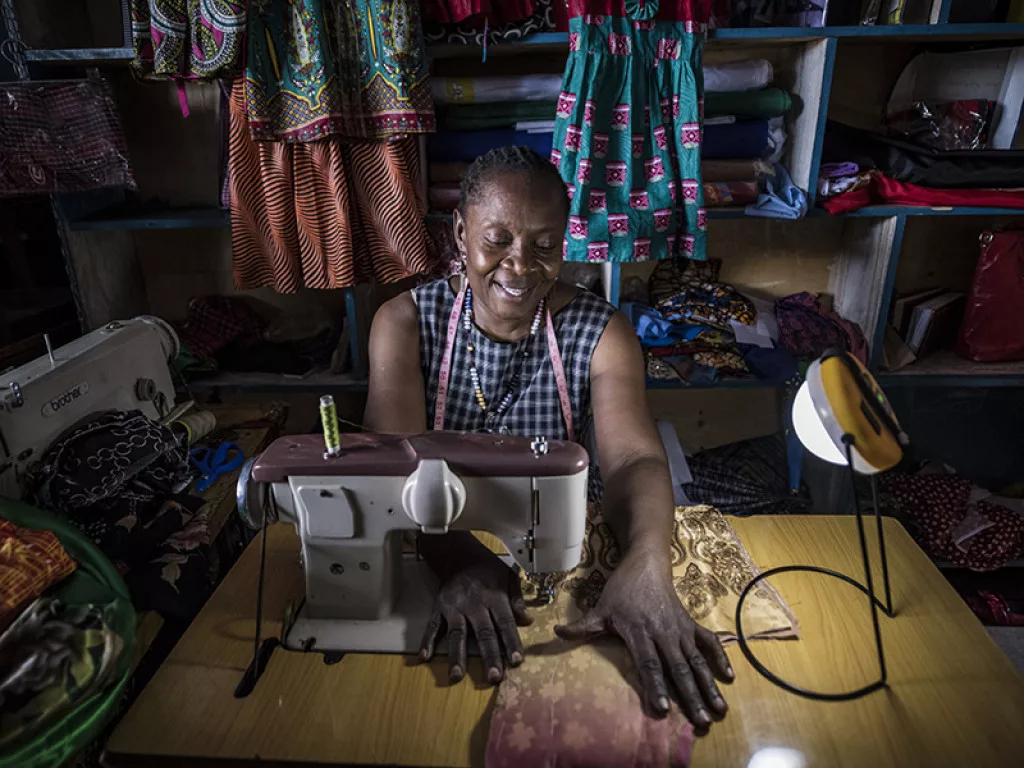
What trends are currently transforming worldwide off-grid solar energy developments and how are you responding to them?
PT: The biggest impact of the last 18 months is – of course – the COVID-19 pandemic. This initially impacted supply chains for off-grid solar products made in China, but then led to lockdowns, operational issues, health and safety concerns and economic challenges for current, and potential, off-grid customers. It also had a knock-on impact on the regulatory and financial environment.
Amongst many other efforts, GOGLA has been working hard to coordinate the industry, get off-grid solar designated as an ‘essential service’, support relief fund efforts and explore longer-term supply chain issues – such as the low availability of some component parts for off-grid products and appliances. Our role is to safeguard the industry where we can and to promote its huge potential to drive a sustainable recovery from the pandemic for some of the world’s most vulnerable communities.
Do you have any projects in the pipeline you wish to highlight?
PT: We undertake continuous work on data, advocacy, policy, events, communications and business support. However, to pull out a couple of other exciting initiatives, I will highlight our work on sustainability and inclusivity.
We are at the forefront for the sector when it comes to exploring sustainability, particularly with regards to managing e-waste as the products our sector sells reach the end of their lifespan. We are driving conversations on reducing waste and developing recycling best practices – with some pilots at relatively advanced stages. The sector already has huge impact when it comes to the environment: reducing CO2 emissions, boosting resilience to climate change and creating green jobs – so we want to ensure that we are considering sustainability throughout.
We are also looking to undertake a number of projects that look at inclusivity in our sector. This is in terms of gender and supporting the participation of women at all levels in our sector from installation to leadership in business, as well as inclusivity when it comes to ensure that local firms – and not just international actors – have the ability to thrive and scale too.
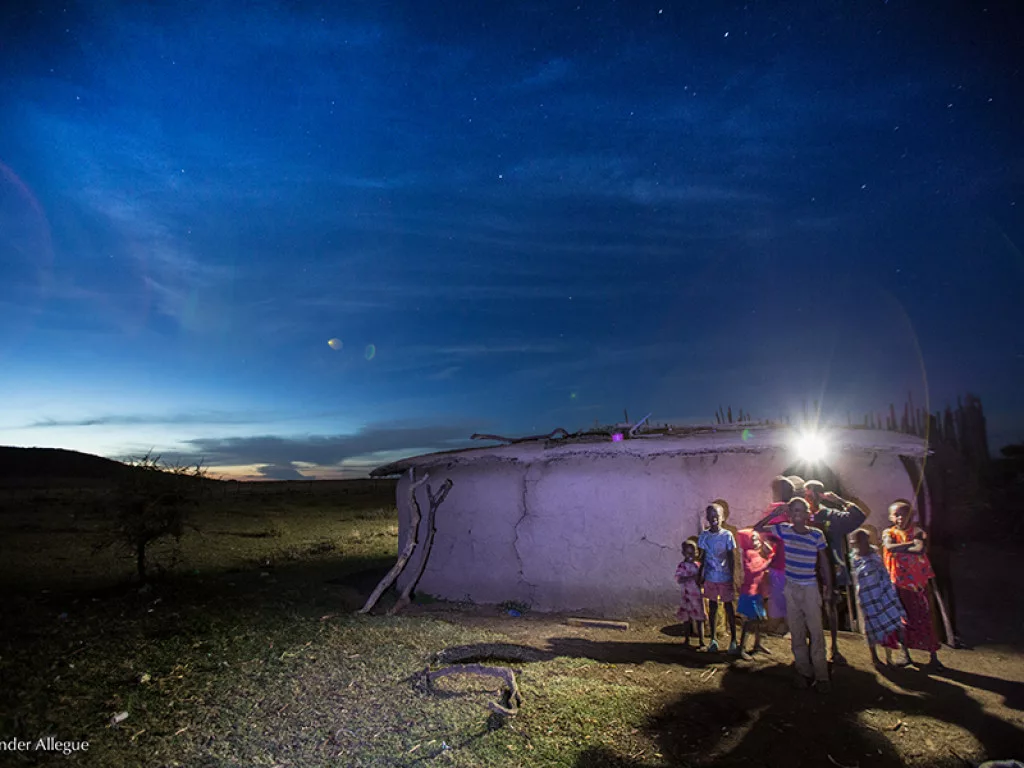
How do you see the industry developing over the next five years?
PT: As an industry we have seen growing maturity of industry solutions that enable our customers to undertake economic activities accompanied by innovation in the use of existing solutions. We therefore are beginning to focus on our role not just in energy access, but in inclusive rural, social and economic development. For example, in agriculture, solar irrigation products are reducing farmers’ reliance on rain-fed agriculture and improving their crop yields. Off-grid companies are also reducing wastage along the agricultural supply chain. From the farm gate through to solar cooling solutions that increase productivity, boost income generation and improve food security. Off-grid solutions are also helping micro and small enterprises in retail, entertainment, tailoring, and more. As well as driving energy access, we see exciting opportunities for our sector to boost economic activity, productivityand incomes.
Are you optimistic about the future of off-grid solar energies, particularly within the developing world?
PT: Absolutely. National governments and the global community at large continue to wrestle with the challenge of ensuring that every community and household has access to basic energy and the myriad benefits this brings.
However, the issues and constraints that have hindered expansion of the main electricity grid in many countries have not changed. In many regions, governments simply don’t have the resources to bring the grid everywhere – and certainly not in the next 10-20 years.
Off-grid solar has an irreplaceable place in addressing the universal energy access challenge and the sector is making important social, economic, and environmental contributions. If you look at the energy access plans and current statistics for most East Africa countries today, you will see that off-grid solar is making a real and important impact for energy poor communities – yet there is still much more to do. We encourage everyone to work with us to ensure that every home, business and community is able to access clean safe energy that powers lives, livelihoods and opportunity.



